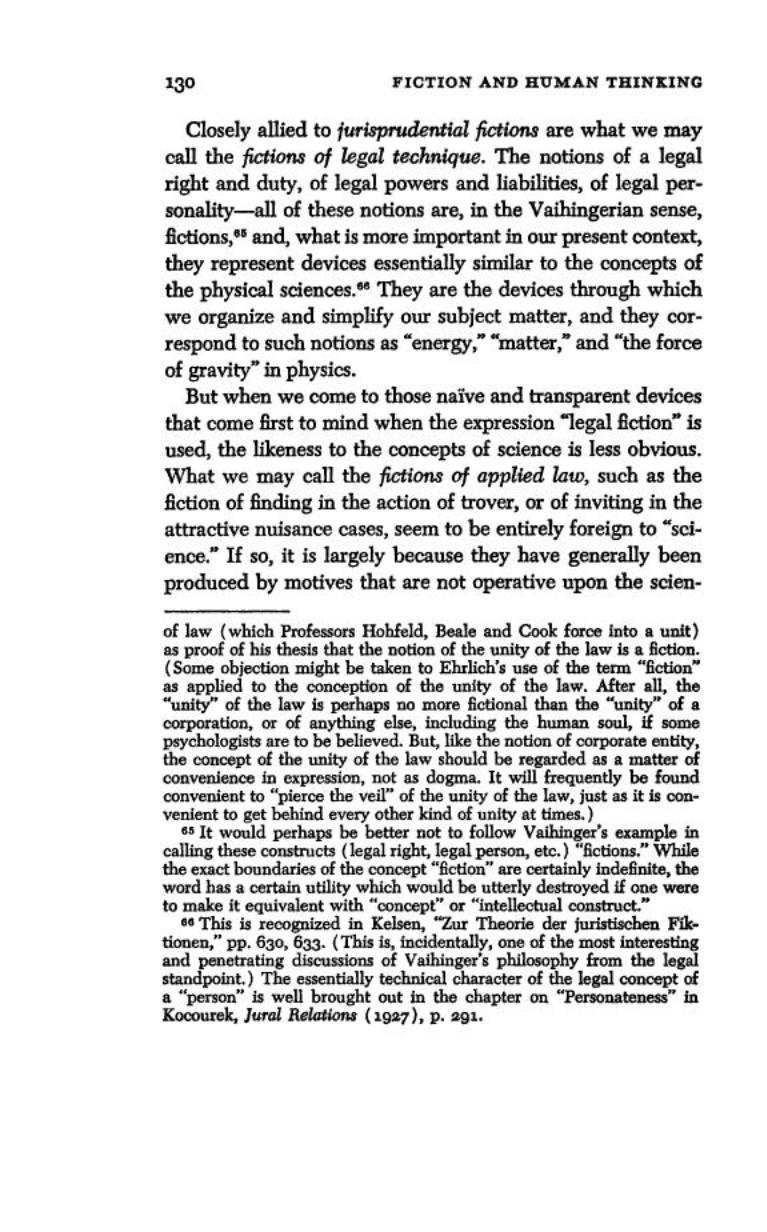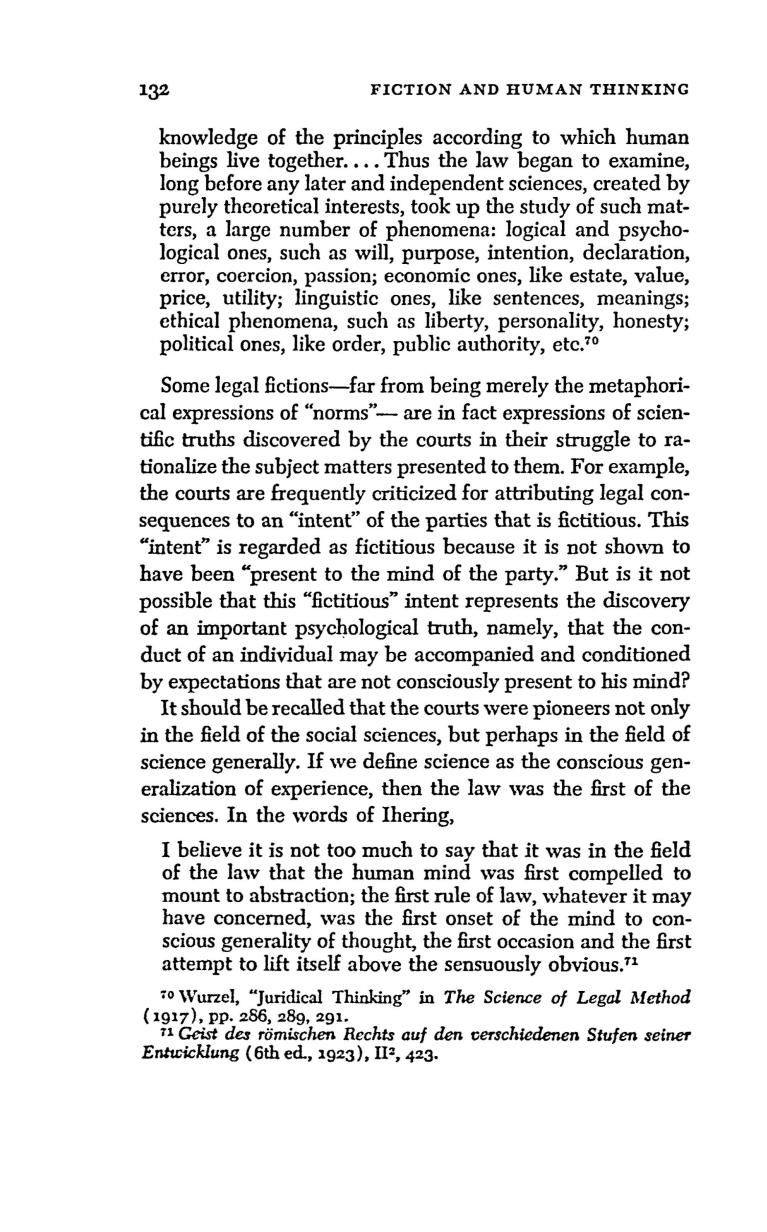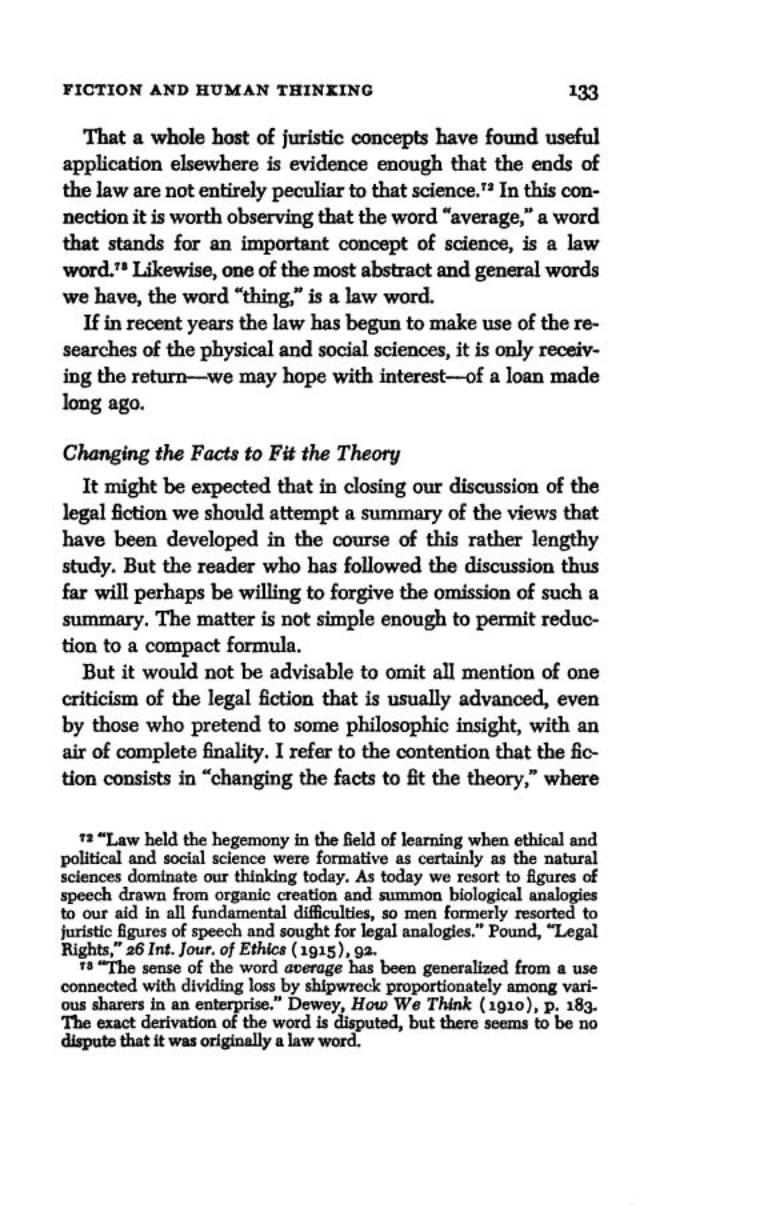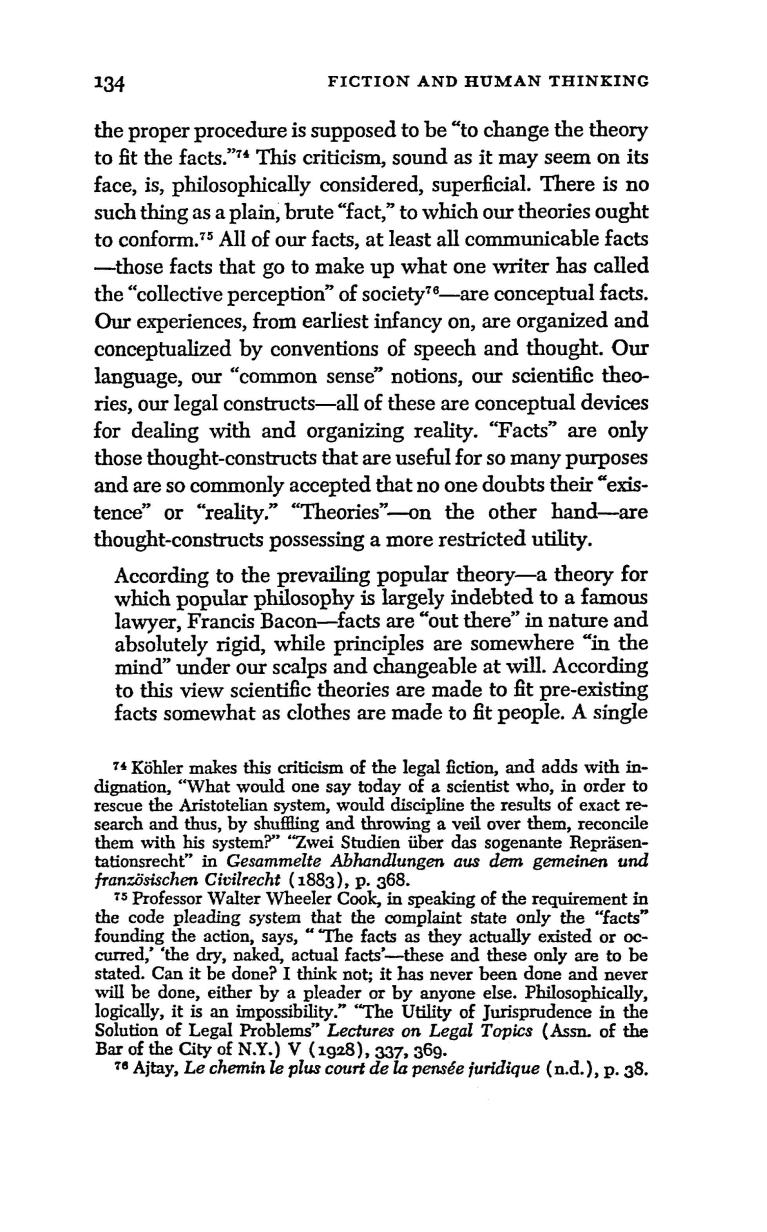
fuller_lon_l_legal_fictions
.pdf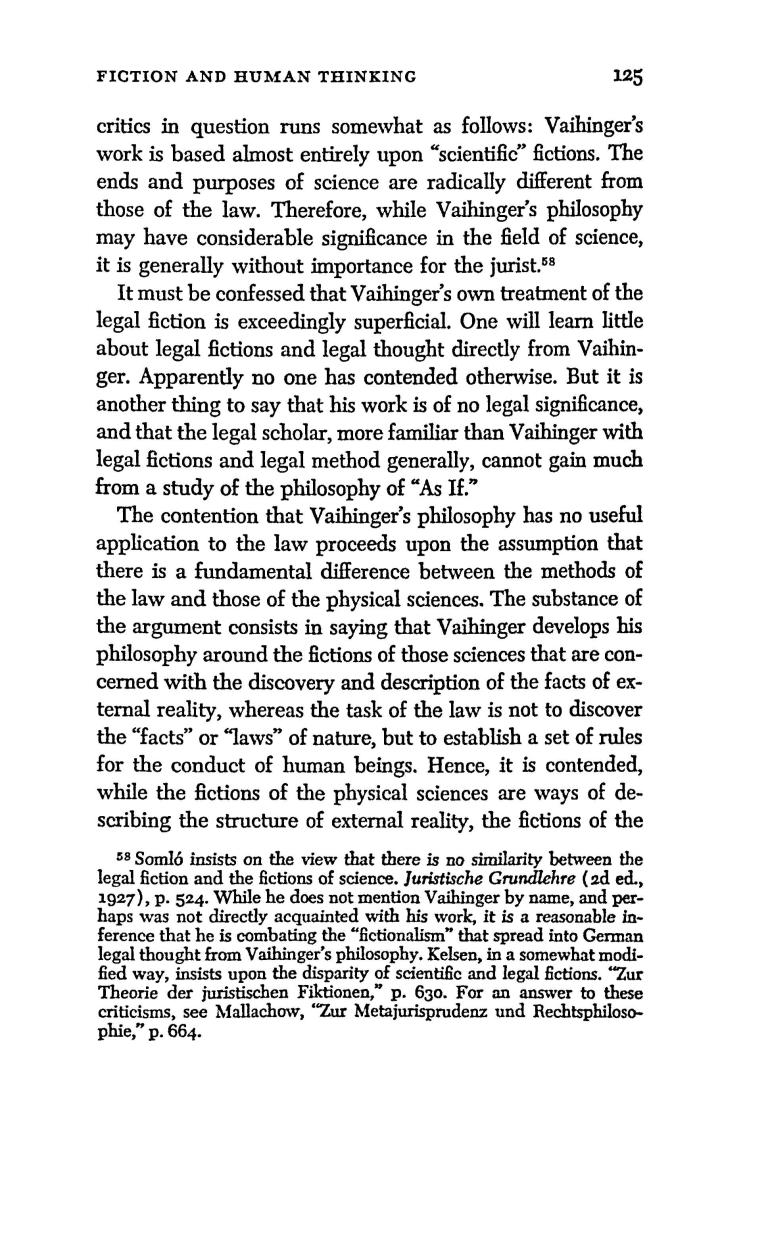
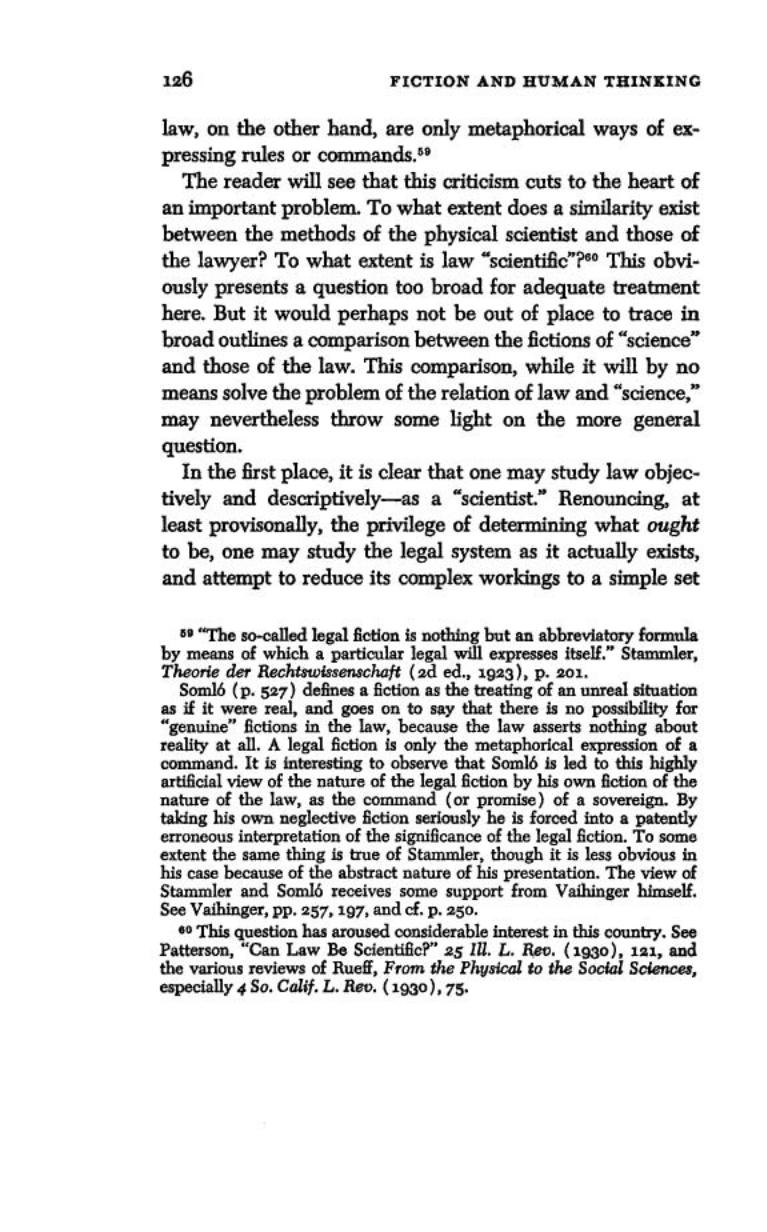
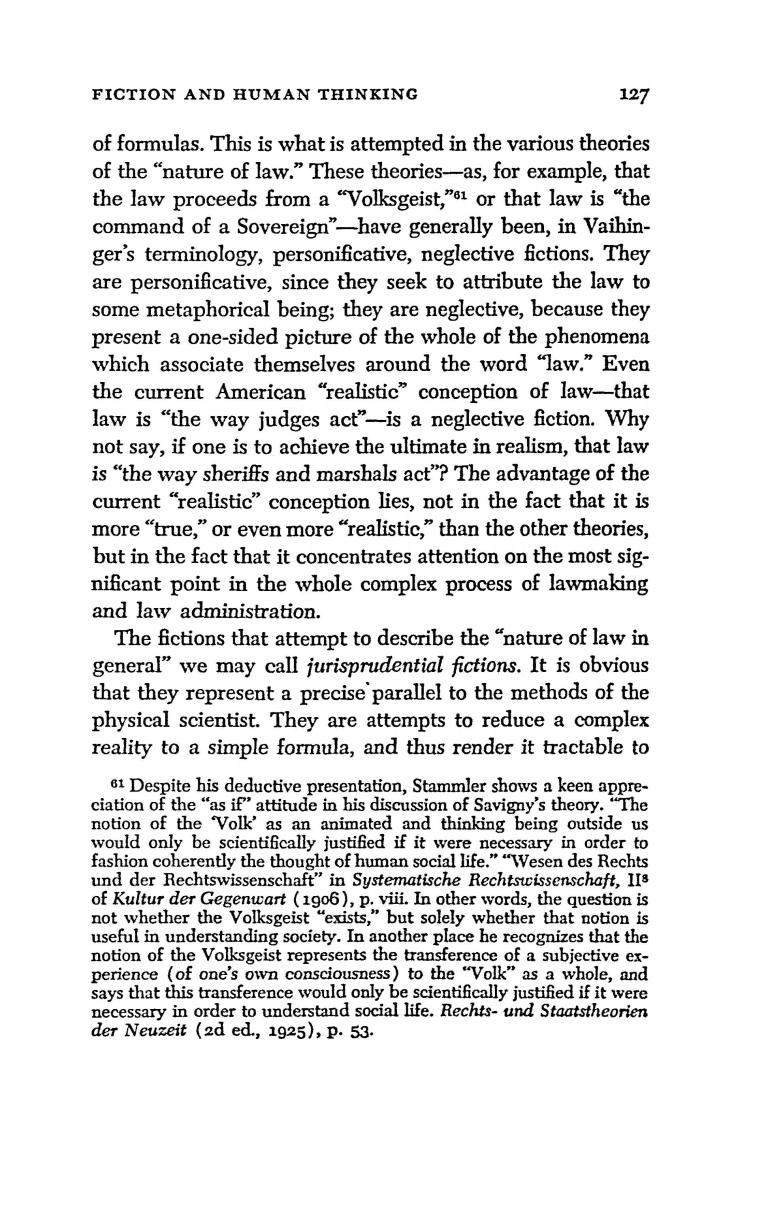
128 |
FICTION AND HU]'{AN THINKING |
calculation.62 That they have generally been oversimplifications results rather from the complexity of the matters dealt with than from any difference in fundamental method.
All theories of law have this in common, that they attribute C1aw" to one source (to the sovereign, the legislator, custom, the Volksgeist, the nature of man, the nature of things, a social compact, etc.) and thus introduce a unity into our conception of the law. But even when one does not subscribe to any particular theory of the "nature of law," one is apt, consciously or unconsciously, to embrace what Ehrlich calls the "fiction of the unity of the law."63 We talk constantly as if there were a unified body of rules proceeding from somewhere, which constitute "the law." Generally this remains only a harmless metaphor. When we say "the law provides" so and so, we are generally able to "expand the symbol" and say that we only mean by this phrase to express the fact that in a certain case the courts will act in a certain ,Yay. But often this notion of the "unity of the law" ceases to be merely a metaphorical convenience of expression and becomes a
62 Of course, we cannot say definitely whether the impetus to these attempts comes from the scientific desire to reduce a complex reality to a simple formula, in order to make the problem of dealing with that reality simpler (cf. the «economic man"), or whether it may not have proceeded from the less praiseworthy notion that because one word, <1aw," is used to describe a number of things, all these things must be reducible to some common element. But even if the latter conjecture represents correctly the motive back of these attempts to define law. would that mean that they were unequivocally removed from the realm of "science"? Is "science" any less infested with word-reification than the law?
63 Ehrlich distinguishes six major fictions of jurisprudence. "That the bringing and defense of a suit must be supported by a rule of law, that the judge must always deduce his decision from a rule of law, that the state is the source of all law, that the function of jurisprudence consists exclusively in the discovery of the will of the legislator. that the judge in the determination of the law must not go beyond the provisions of the statute, that jurisprudence must conceive of the rules of law as forming a unity ••• all .•• of these precepts have this in common-that upon closer inspection they reveal themselves as fictions." Die juristische
Logik (2d ed, 1925), pp. 148-49.

